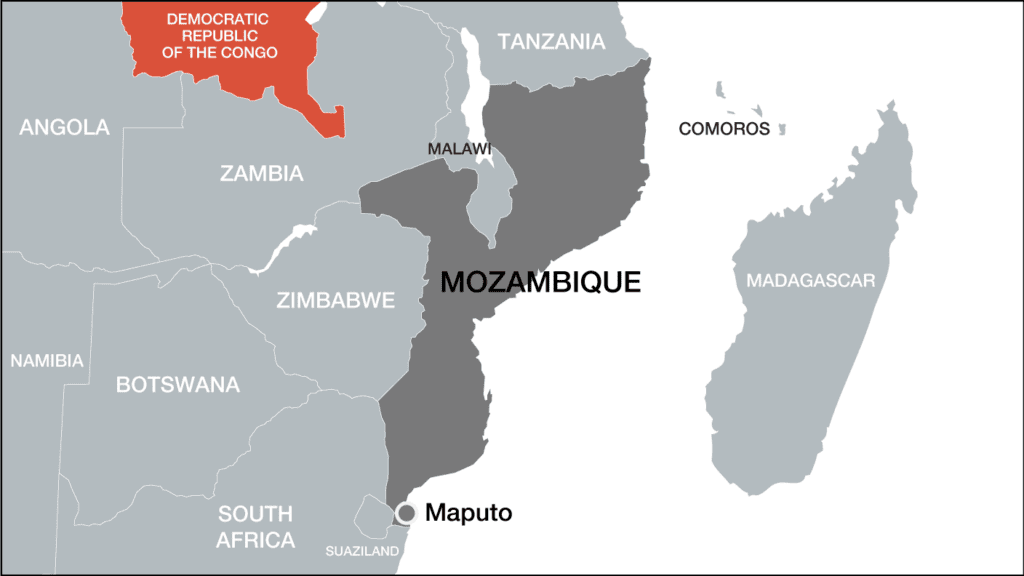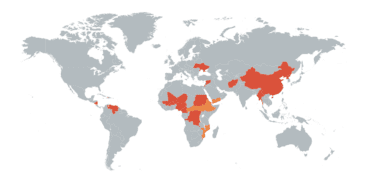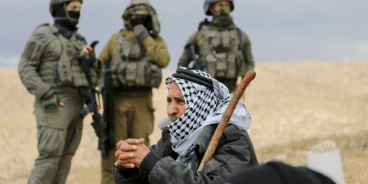Mozambique

During their armed insurgency the extremist group “Al-Shabaab” perpetrated likely atrocity crimes against populations in the Cabo Delgado region of Mozambique.
BACKGROUND:
Since October 2017 an armed extremist group, known locally as “Al-Shabaab,” has engaged in a violent insurgency in Cabo Delgado, a northern province of Mozambique. Al-Shabaab, which is loosely affiliated with the so-called Islamic State of Iraq and the Levant, has perpetrated indiscriminate attacks against civilians, including extrajudicial executions, beheadings, sexual and gender-based violence, sexual slavery, abductions, recruitment of child soldiers and destruction of civilian infrastructure. More than 6,500 people were killed between October 2017 and June 2023. Mozambican government forces and affiliated private security groups, including the Wagner Group, were also implicated in violations of International Humanitarian Law, including extrajudicial executions and torture, among other violations that may amount to war crimes, during operations to combat the group.
The violent insurgency was partly prompted by the discovery of offshore natural gas fields near Cabo Delgado and allegations of government corruption. Fighting between Al-Shabaab and security forces has primarily taken place near Mocímboa da Praia, Palma and other port towns where several major offshore liquified natural gas projects are under development. Al-Shabaab attacks escalated during 2020 and early 2021, resulting in significant clashes with government forces as they fought for control of key port cities. The French energy corporation TotalEnergies froze project development after Al-Shabaab violently seized Palma in March 2021 in an attack that killed at least a dozen civilians, including foreign energy staff. In September 2023 TotalEnergies announced plans to restart their liquefied natural gas projects following the release of a commissioned human rights report on 23 May, which noted that while armed conflict is expected to continue, fighting has shifted away from the development site.
In June 2021 the Southern African Development Community (SADC) approved the deployment of a standby force (SAMIM) to assist Mozambique in confronting the group. The following month, after a request by the Mozambican government, Rwanda also deployed troops and police to Cabo Delgado. In September 2022 the SADC revised its mission, shifting toward a multidimensional operation with greater focus on peacebuilding and governance. Although regional forces aided the Mozambican government in regaining control of many cities after their initial deployment, during 2022 insurgent activity continued to spread.
Insecurity continues to prevent humanitarian aid from reaching vulnerable populations. At least 2 million people in northern Mozambique need life-saving humanitarian assistance and protection. The UN Refugee Agency reported in August 2023 that over 571,468 people have returned to their homes after being displaced by violence, yet continue to face multiple protection risks, and more than 850,599 remain internally displaced. Large areas within districts of Cabo Delgado remain inaccessible to humanitarian operations.
Mozambique has a history of atrocities stemming from its 1977-1992 civil war, during which approximately 1 million people died. War crimes and crimes against humanity were perpetrated by the armed rebel group, Mozambican National Resistance (RENAMO). The armed forces of the ruling Front for Liberation of Mozambique (FRELIMO) also perpetrated war crimes.
RECENT DEVELOPMENTS:
Between 14-26 September 2023 Al-Shabaab perpetrated a series of attacks in Macomia, Mocímboa da Praia and Muidumbe, displacing approximately 7,000 people. Notably, on 14 September at least 11 people were killed in the village of Naquitengue, Mocímboa da Praia, after Al-Shabaab targeted non-Muslim community members. Between 10-14 November an additional 1,546 civilians were displaced within Macomia and Muidumbe districts due to violence and fear of attacks by non-state armed groups.
Following the conclusion of local elections on 11 October, mass protests erupted across Mozambique in response to widespread allegations of irregularities. The opposition party RENAMO encouraged demonstrations to denounce allegedly fraudulent election results that declared FRELIMO the winner in 64 out of 65 municipalities. The latest crackdown is part of a pattern of abuses by Mozambican police forces to silence opposition. According to Amnesty International, police in Mozambique regularly used lethal force and arbitrary arrest and detention to curtail people’s right to peaceful protest, having suppressed at least three peaceful protests and arbitrarily detained at least 29 protesters throughout 2023.
ANALYSIS:
The discovery of liquified natural gas off the coast of Mozambique brought hope for a boost to the country’s economy but was accompanied by increased allegations of government corruption and economic impropriety. The launch of foreign gas extraction projects has seriously impacted the livelihoods of the civilian population – who already faced economic exclusion – by evicting communities, failing to deliver on promises of jobs and exacerbating extreme inequality. Al-Shabaab has exploited local grievances and popular discontent over corruption and poverty in Mozambique to recruit fighters.
Despite security gains by regional military offensives which have significantly weakened Al Shabaab and decreased attacks against civilians, populations continue to face protection risks amidst sporadic insurgent activity. As part of efforts to portray Cabo Delgado as safe for foreign investors, Mozambican authorities have encouraged displaced civilians to return to their areas of origin despite ongoing insecurity and heightened protection risks, including gender-based violence, abduction, extortion, arbitrary detention and discrimination. Insurgents have attacked returnees, threatening a new escalation of violence.
With the increased presence of foreign security forces in northern Cabo Delgado, Al-Shabaab has expanded southward and is threatening communities where Mozambican security forces cannot contain the growing threat. Due to the lack of effective coordination between Rwandan forces, SAMIM and Mozambique security forces, Al-Shabaab is able to navigate and exploit gaps in their areas of responsibility.
RISK ASSESSMENT:
-
- History of atrocity crimes perpetrated by extremist groups and government forces.
- Limited government capacity to combat insurgent activity and provide adequate protection to populations.
- Mass displacement of civilians and heightened vulnerability of returnees to areas with widespread protection and humanitarian needs.
- The exploitation of natural resources and launch of extraction projects exacerbate local grievances.
- Pattern of disregard for human rights protections during counterterrorism operations.
NECESSARY ACTION:
Mozambique’s security forces and their regional partners should ensure the protection of civilians and internally displaced persons in Cabo Delgado and Nampula, including through increasing patrols in areas vulnerable to attack. Mozambican authorities should also guarantee the protection of all returnees by conducting thorough security assessments before advising displaced people to return.
All government and regional forces must ensure military operations against Al-Shabaab are carried out with strict adherence to international law, utilize tactics that mitigate civilian harm and strengthen their coordination to close protection gaps. It is imperative that Mozambican authorities provide affiliated militias with technical, logistical and supervisory support, establish vetting procedures and implement trainings to ensure compliance with human rights.
The government should more effectively address the root causes and the relevant legal, historical, social and political context of the insurgency, including economic instability caused by acute poverty, mass unemployment or deep horizontal inequalities.
Atrocity Alert No. 331: DR Congo, Bangladesh and Mozambique
Related Content

R2P Monitor, Issue 66, 1 September 2023

